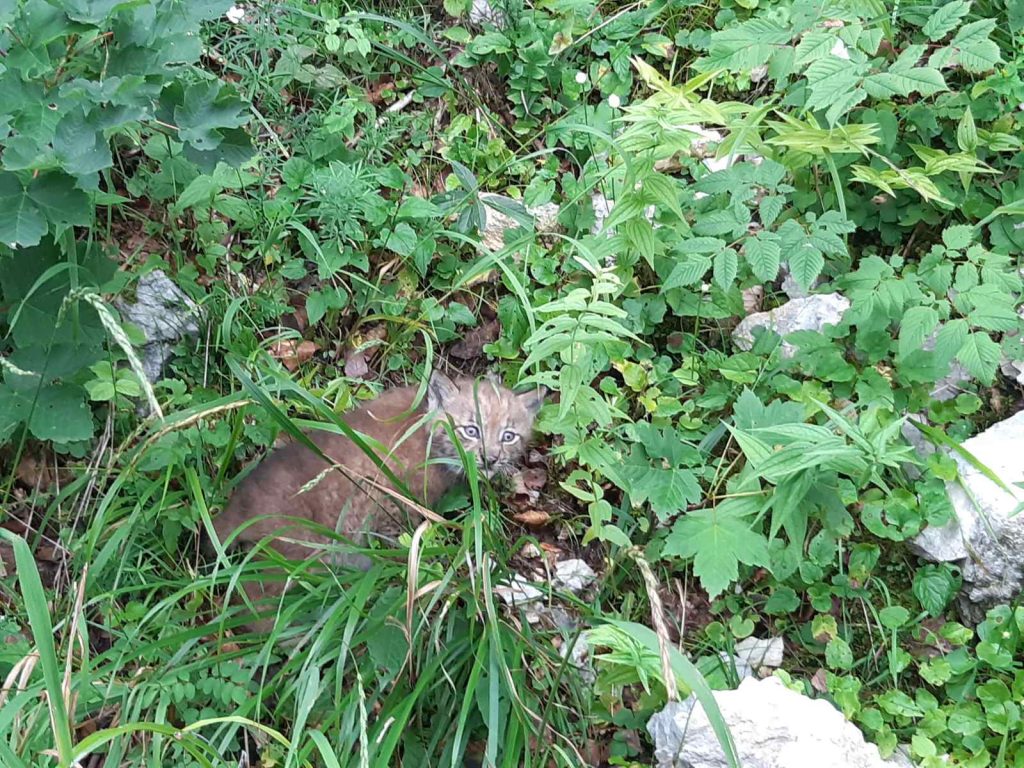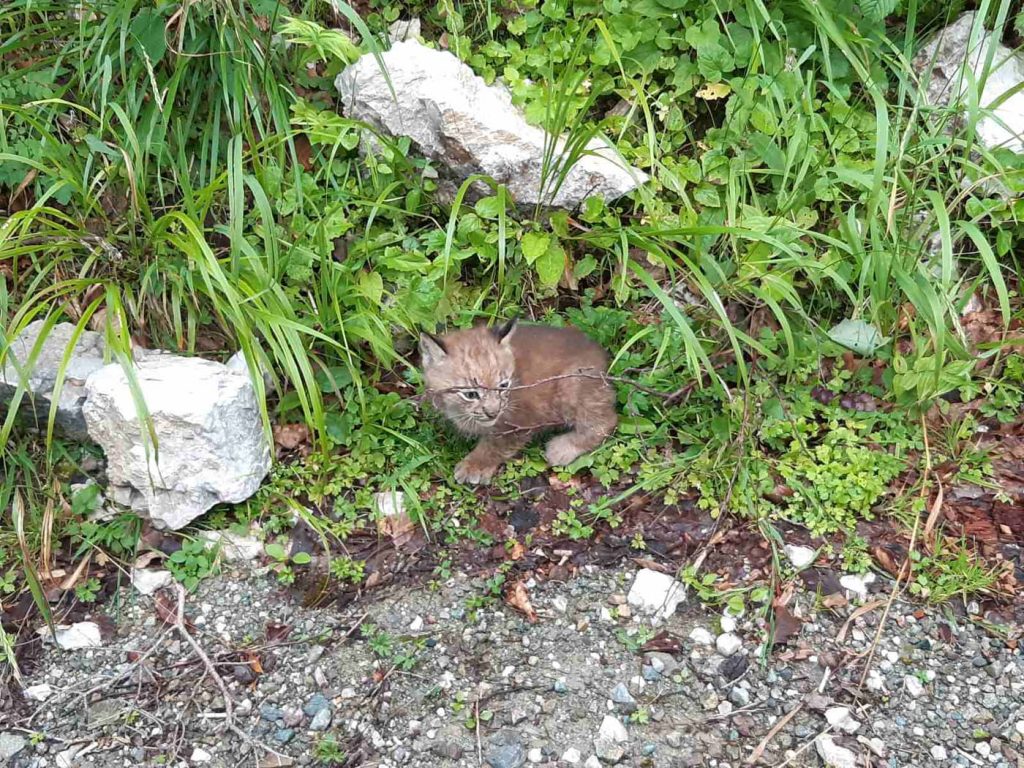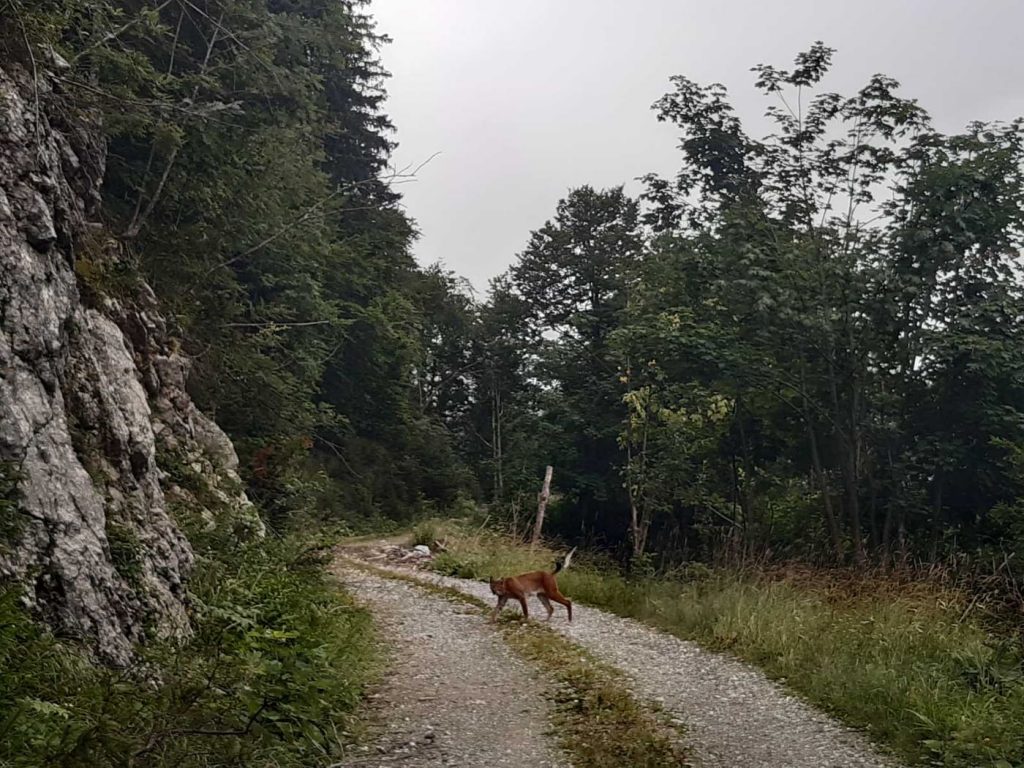We got first proof of lynx reproduction in Slovenian Alps. Two hikers from Gorenjska were extremely lucky and saw three lynx kittens and their mother Aida, while hiking in Jelovica plateau. They shared with us their experience and photos of the lynx kittens and their mother Aida:
“It was a cold August morning, and we were headed hiking in Jelovica area. Fortunately, we skipped the morning coffee on Soriška planina and drove directly to the starting point, otherwise our morning would be far less exciting. And there we saw them, two small furry animals hiding in the high grass beside the road. At first, we thought they could be foxes, but their tails were too short. Then we stopped the car and saw they were two lynx kittens. Immediately we knew that this is something special so we started phoning and got the contact of the LIFE Lynx project team. We also called a local hunter from Sorica who came to meet us straight away. We sat quietly in the car as a mouse. It was very cold, but we did not feel it, we are too excited. Soon the mother lynx came to get her young ones and only then we saw that there were not two, but three kittens hiding in the tall grass. After the kittens were safely transferred to another location, we still sat in the car and contemplated on the event that we had the honor of witnessing. After a while, another lynx came to check the situation. Could it be the kittens’ father, lynx Zois? We heard a lynx call and knew that now is the time to leave them be.”
Petra and Mateja from Gorenjska

Lynx kitten in the tall grass beside the road. Photo: Mateja Mohorič

Lynx kitten from Jelovica area. Photo: Mateja Mohorič

Encounter with the female lynx Aida. Photo: Mateja Mohorič
Lynx encounters in the wild are very rare, especially seeing lynx with kittens. It is important not to disturb the animals, since these first months are crucial for lynx survival. During the denning period, females move their kittens quite often to reduce the smell, which protects them from potential predators. However, in nature, not all kittens make it to adulthood; usually the mortality in the first year is around 50%. We just started a lynx-monitoring season 2021/2022 and the LIFE Lynx project team plans to set some camera-traps also in Gorenjska region, so we can monitor how many lynx kittens will survive.
